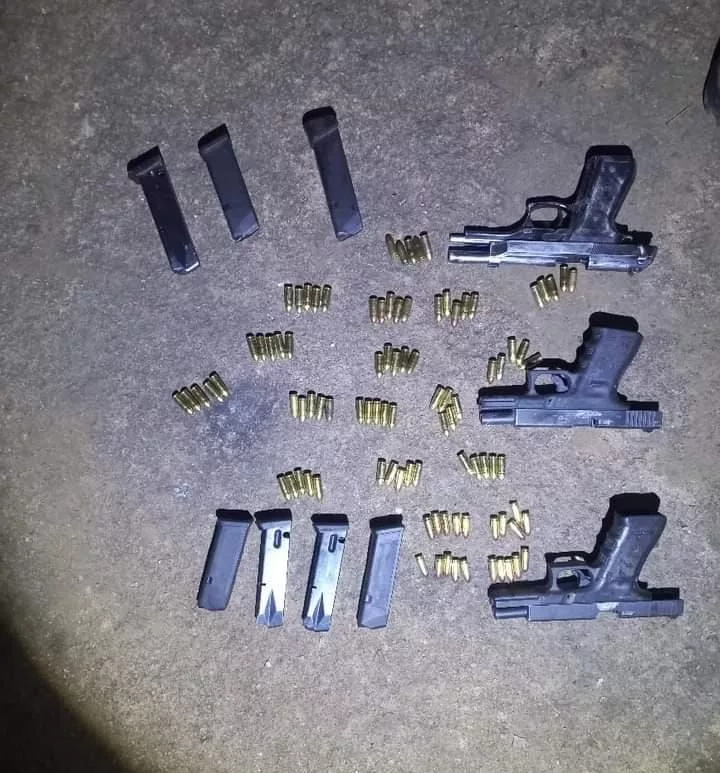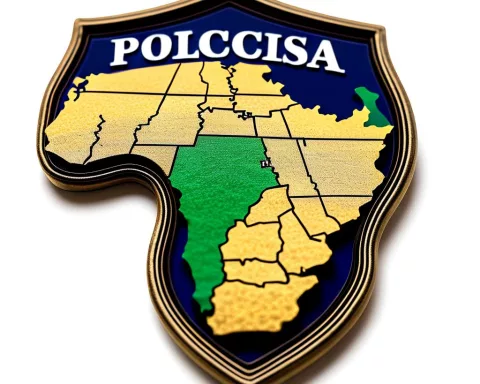Gauteng, South Africa’s bustling heart, is fighting back against gun violence with Lieutenant General Elias Mawela leading the charge. Law enforcement authorities are making progress in their efforts to combat the use of firearms in violent offenses through various initiatives, including Operation Shanela and public support through reporting crime. They have confiscated over 400 firearms and 6,000 live ammunition rounds, making Gauteng a safer place.
How is Gauteng proactively addressing gun violence?
In Gauteng, law enforcement authorities are actively working to combat the use of firearms in violent offenses. Through various crime deterrence initiatives, including the intelligence-led Operation Shanela and public support through reporting crime, law enforcement has confiscated over 400 firearms and 6,000 live ammunition rounds. The unwavering dedication of the SAPS and other authorities is making strides towards a safer Gauteng.
Proactively Addressing Gun Violence
In Gauteng, the pulsing core of South Africa, an ambitious endeavor is underway by law enforcement authorities, aimed at exterminating the most lethal instrument in violent offenses – firearms. The driving force of this herculean effort is Lieutenant General Elias Mawela, the Provincial Commissioner of Gauteng, whose steadfastness in prioritizing the combat against illicit and unregistered firearms in the province has yielded significant triumph.
With the dawn of the year 2024, the South African Police Service (SAPS) in Gauteng, in collaboration with its allied law enforcement entities, has played a pivotal role in the confiscation of more than 400 firearms and a remarkable 6000 live ammunition rounds. These victories are the outcome of various crime deterrence initiatives, all showcasing unique techniques of crime discovery and prevention.
Operation Shanela: A Pillar in Crime Prevention
The prestigious Operation Shanela stands out among these initiatives. This operation, characterized by intelligence-led actions like daily patrols, stop-and-search tactics, and vehicle checkpoints, has emerged as a cornerstone in the combat against firearm-related crimes. The efficacy of these varied strategies is undeniably reflected in the significant quantity of firearms and ammunition seized within a relatively brief period.
A noteworthy victory of this operation transpired on 9 January 2024. On this day, members of the Springs Crime Prevention unit, acting on a tip from local residents, executed an intelligence-led operation at the Everest informal settlement. This search operation unearthed a firearm and its ammunition, cleverly concealed in a rice bin. A 20-year-old suspect was immediately apprehended for possession of the unregistered firearm and illegal ammunition.
Continued Vigilance in Law Enforcement
In another separate episode, the alertness of Edenvale patrol officers led to the detainment of three individuals found in possession of a pair of firearms bearing scratched-off serial numbers. This incident serves as a grim reminder of the crafty techniques often employed by culprits to evade detection, and the tireless efforts of our law enforcement bodies to thwart them.
The unwavering dedication of the SAPS and the other law enforcement authorities in Gauteng to cleanse their streets of illicit and unregistered firearms is indeed commendable. As expressed aptly by Lt. Gen Mawela, “One firearm retrieved from the wrong hands is impactful as it could potentially save a life or prevent property damage.”
Public Support and Tools for Reporting Crime
With Gauteng’s war against crime gaining momentum, the communal support and participation have proved crucial in this endeavor. The police, in response, have extolled the public for their role in divulging criminal activities and providing valuable tip-offs, many of which have contributed to the victories observed today.
The SAPS has facilitated numerous channels for the public to report crime, including the Crime Stop number – 08600 10111, and the MySAPS App, which can be installed on any smartphone. These platforms uphold stringent confidentiality for informants, thereby emphasizing the importance of public participation in the struggle against crime.
Looking Forward: A Hopeful Future
In the broader context of crime deterrence, the confiscation of firearms from Gauteng’s streets marks a considerable stride. The tireless efforts of law enforcement authorities combined with the unshakeable support of the public form a formidable allegiance against crime. While the journey is far from its conclusion, the progress achieved so far is reassuring, infusing a sense of optimism in the hearts of many.
1. What is the triumph of Gauteng’s firearm seizure measures?
Law enforcement authorities in Gauteng have confiscated over 400 firearms and 6,000 live ammunition rounds through various initiatives, including Operation Shanela and public support through reporting crime. This has contributed to combatting the use of firearms in violent offenses and making Gauteng a safer place.
2. Who is leading Gauteng’s fight against gun violence?
Lieutenant General Elias Mawela, the Provincial Commissioner of Gauteng, is leading the charge against gun violence in Gauteng.
3. What is Operation Shanela?
Operation Shanela is an intelligence-led operation characterized by daily patrols, stop-and-search tactics, and vehicle checkpoints. It has emerged as a cornerstone in the combat against firearm-related crimes in Gauteng.
4. How crucial is public support and participation in Gauteng’s fight against gun violence?
Public support and participation have proved crucial in this endeavor. The police have commended the public for their role in divulging criminal activities and providing valuable tip-offs, many of which have contributed to the victories observed today.
5. What platforms are available to the public for reporting crime in Gauteng?
The SAPS has facilitated numerous channels for the public to report crime, including the Crime Stop number – 08600 10111, and the MySAPS App, which can be installed on any smartphone. These platforms uphold stringent confidentiality for informants, thereby emphasizing the importance of public participation in the struggle against crime.
6. What is the outlook for Gauteng’s fight against gun violence?
While the journey is far from its conclusion, the progress achieved so far is reassuring, infusing a sense of optimism in the hearts of many. The tireless efforts of law enforcement authorities combined with the unshakeable support of the public form a formidable allegiance against crime.












